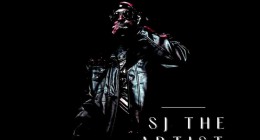The 2021 professional football season is just over a month old, and the NFL is already preparing for the 2023 Super Bowl.
The National Football League’s Super Bowl halftime show is sponsored by Pepsi, though the deal is set to expire after the 2022 game that marks the end of the current season. The NFL is now planning to take future sponsorship rights to the open market, according to people familiar with the matter who asked not to be named because the negotiations are private.
Pepsi obtained the show’s rights in 2012 as part of a more significant marketing deal valued at over $2 billion, according to the Wall Street Journal. Before that, auto parts manufacturer Bridgestone held the show’s rights and paid up to $10 million annually.
Pepsi could still renew its deal with the league, but the NFL may also choose to carve out the halftime show and sell the asset separately, the people said.
The NFL declined to comment for this story.
Pepsi will remain the sponsor of February’s game in Los Angeles, with performers including Dr. Dre, Snoop Dogg, Mary J. Blige, Kendrick Lamar, and Eminem. The NFL partners with Jay-Z’s Roc Nation to produce the show. The 2022 Super Bowl airs on NBC, which is owned by CNBC parent company Comcast.
The value of the halftime show could range from $25 million to $50 million, one marketing expert estimated, using industry metrics. That takes into account what Bridgestone last paid for the rights along with an evolving media landscape that factors in social media impressions.
Coming up with a precise estimate is a challenge. NBC charged $6.5 million for 30-second ad slots for the upcoming Super Bowl LVI in 2022. Applying that figure to a 12-minute halftime show would assume an ad value in the $150 million range. But it’s unlikely a company would pay that much every year just for the halftime performance.
A Super Bowl halftime rights package usually includes ancillary programming during the NFL season, commercial spots during the Super Bowl, exclusive access to performers for content and other NFL branding leading up to the game.
Wherever it lands, the price would be rich, as marketers get a huge audience when they invest in the Super Bowl. The 2021 game averaged 96.4 million viewers (including streaming) for the Tampa Bay Buccaneers vs. Kansas City Chiefs matchup. NBC last aired the Super Bowl in 2018, drawing over 100 million viewers.
“Nothing reaches half the marketplace in homes and demographics [other] than the Super Bowl,” said Tony Ponturo, who was vice president of Anheuser-Busch global media sports and entertainment marketing. “Some younger, new tech company that wants to make a splash and has the resources to do it” should make a bid for the rights should they go to market, he added.
‘Instant brand awareness’
In discussing Super Bowl rights with CNBC on Wednesday, Ponturo used Apple’s 1984 Super Bowl commercial as an example of how newer tech companies can “rock the boat” using the NFL’s top game.
“If you didn’t know who Apple was in 1984, you now knew who Apple was,” Ponturo said. “It was Steve Jobs’ way of making a huge splash.”
Given the game’s global appeal and the halftime show’s inclusion of artists from outside the U.S., the sponsor could come from another country, including Germany, where the NFL wants to grow. Asked about brands that could potentially be a good fit, Ponturo mentioned electric car maker Lucid Motors.
“I would guess one out of 100 auto customers know who Lucid even is,” Ponturo said. “So if they need brand awareness and want to make a huge splash to people not on Wall Street or auto aficionados to know who they are, I can see a company like that doing it.”
Ponturo called it “instant brand awareness” and, despite the high price tag, “one would argue it’s worth it,” he said.
Lucid didn’t immediately respond to a request for comment.
WATCH: Cowboys quarterback Dak Prescott discusses restaurant investment





